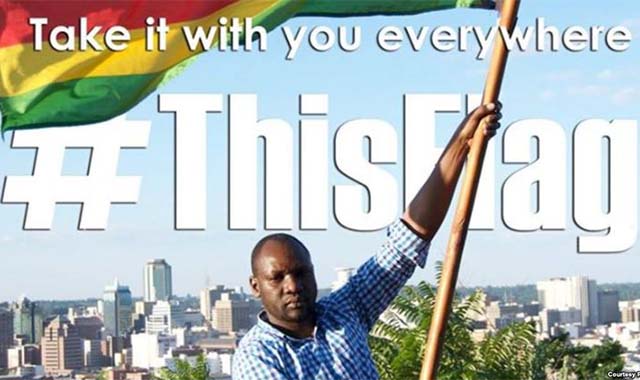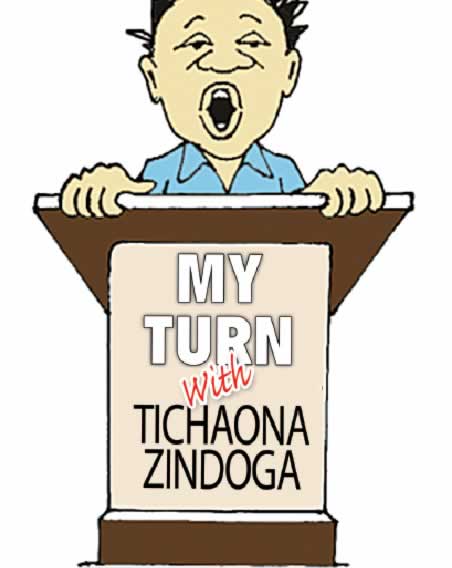Camera, lights, action and social media!

 Suffice to say that just two weeks have proven #ThisFlag to be just one of those fads and one that everyone is quickly beginning to forget. Until the next one. Fads do not make revolutions, even if they make for excellent pub talk and social media discussions.
Suffice to say that just two weeks have proven #ThisFlag to be just one of those fads and one that everyone is quickly beginning to forget. Until the next one. Fads do not make revolutions, even if they make for excellent pub talk and social media discussions.
Some time in May when the so-called #ThisFlag campaign set the social media alight, Alex Magaisa, one time advisor to MDC-T leader Morgan Tsvangirai when the latter was Prime Minister in the short-lived inclusive Government, gushed about how his “hopes” for a “revolution” in Zimbabwe had been raised by the fad.
#ThisFlag is a brainchild of one Evan Mawarire, a local pastor.
With the opposition in Zimbabwe and on social media scrambling for anything and everything to rally around, Magaisa’s optimism was understandable.
But it was also flawed.
So, one user stated to his face that, “@Wamagaisa Doc either your hopes are too shallow, too giddy or too fleeting . . . this is, but a net (Internet) fad. Revs (revolutions) are out there with the ppl (people)”
The user posed further: “@Wamagaisa say, are vendors, that combustible mass on the streets hooked up on #ThisFlag? And they even didn’t participate (in the) last MDC march”.
Magaisa did not take up the challenge.
Rather, he asked, “Are you asking me or giving me your opinion?” and when his interlocutor replied that Magaisa had to answer the question raised, he simply said, “Thank you for your opinion”.
It was clear that Magaisa, who appears hooked up on social media more than committed to his other talents as a law teacher, was not willing to engage and discuss the fundamental significance and longevity of social media “revolutions”.
Suffice to say that just two weeks have proven #ThisFlag to be just one of those fads and one that everyone is quickly beginning to forget.
Until the next one.
Fads do not make revolutions, even if they make for excellent pub talk and social media discussions.
The inherent weakness around fads such as #ThisFlag is that they are not organic ideas grounded in the masses and their daily sufferings.
In fact, the masses are not even the subject and audience of such things as #ThisFlag.
Rather, these fads are not only self-serving, but also purely for the consumption and audience of elitists and, now, funders of political projects.
The political activism that Zimbabwe is in vogue is all about cameras, light action and social media.

The masses are not even the subject and audience of such things as #ThisFlag campaigns by Evan Mawarire
It is one quick way to gain political mileage and recognition — or even notoriety. It is about personalities and less about than issues they purport to articulate or fight for. This is what has given names to some activists, who for all we know, did not pose any threat to the establishment they opposed, save for the grass in Africa Unity Square.
Evan Mawarire of #ThisFlag fame is in the same mould.
So are the likes of women activists — some known to be alcoholics — who now purport to be staging a 16-day protest in the same Africa Unity Square.
We now know that trouble is brewing among the activists because of the fame and crumbs that are bound to follow.
It is interesting to note that for all the growing numbers of vendors on Harare’s Streets — which many people take as evidence of socio-economic pain — there has never been any vendor who has joined the now all too frequent sit-ins at Africa Unity Square which are being pursued by over-fed opposition activists.
Nor did the vendors join and swell the numbers of the opposition MDC-T when it staged a march a few weeks back.
Ordinary people see self-serving, personalised and usually moronic, money-spinning activist initiatives for what they really are.
This is an uncomfortable truth to the likes of Alex Magaisa, which is probably why he did not want to be drawn into discussion on the political-empirical and scientific nature of such a fad like #ThisFlag.
Or perhaps he is a victim too — an active participant in a great delusion.
There seems to be a very small, but vocal opposition social media community that not only seeks to advance its opposition agenda, but usually also hounds and insults those who do not see things their way.
That is the folly of a bunch of people who believe their own lies.
This crowd is pretty much captive to such shenanigans as come from the camera lights, , action characters.
For all their purported sophistication — and there are many people on Twitter who tend to overrate their intelligence — there are some people who are political simpletons.
It was pretty much the same way in the run up to the last elections in 2013, when the whole opposition movement was entranced by a shadowy character called Baba Jukwa.
Following this character and all the noise that it created and noise created around it, one would be forgiven for thinking that the elections were going one way — the opposition way!
It is not a coincidence that Alex Magaisa was part of Tsvangirai’s office when MDC-T heavily lost elections, both parliamentary and presidential.
One can surmise that in the Baba Jukwa era, Magaisa was as hooked as any street fool on the fad of Baba Jukwa that he forgot to look at the practical realities of Zimbabwe and its electoral dynamics.
Surely, for someone who believes that the so-called #ThisFlag “campaign” is a revolution — which it is not, he must have been over the moon over Baba Jukwa! So much so that, one can imagine, he didn’t even deploy the consultancy skills that he was brought all the way from the United Kingdom to provide and, as we hear, get paid handsomely by the British.
But the issue is not about Magaisa.
He could be a victim, too.
The issue is about pseudo-revolutions and pseudo-revolutionaries who thrive on social media to get the attention of the world.
They are more of actors who seek personal than genuine national builders.
They cannot make a revolution — even when there is no shortage of people to buy into it.
Because hashtag or social media revolutions, at least in Zimbabwe for now, are not about people — real people — but virtual spectators and potential sponsors; they only make up passing fads.
Until the next hashtag.










Comments